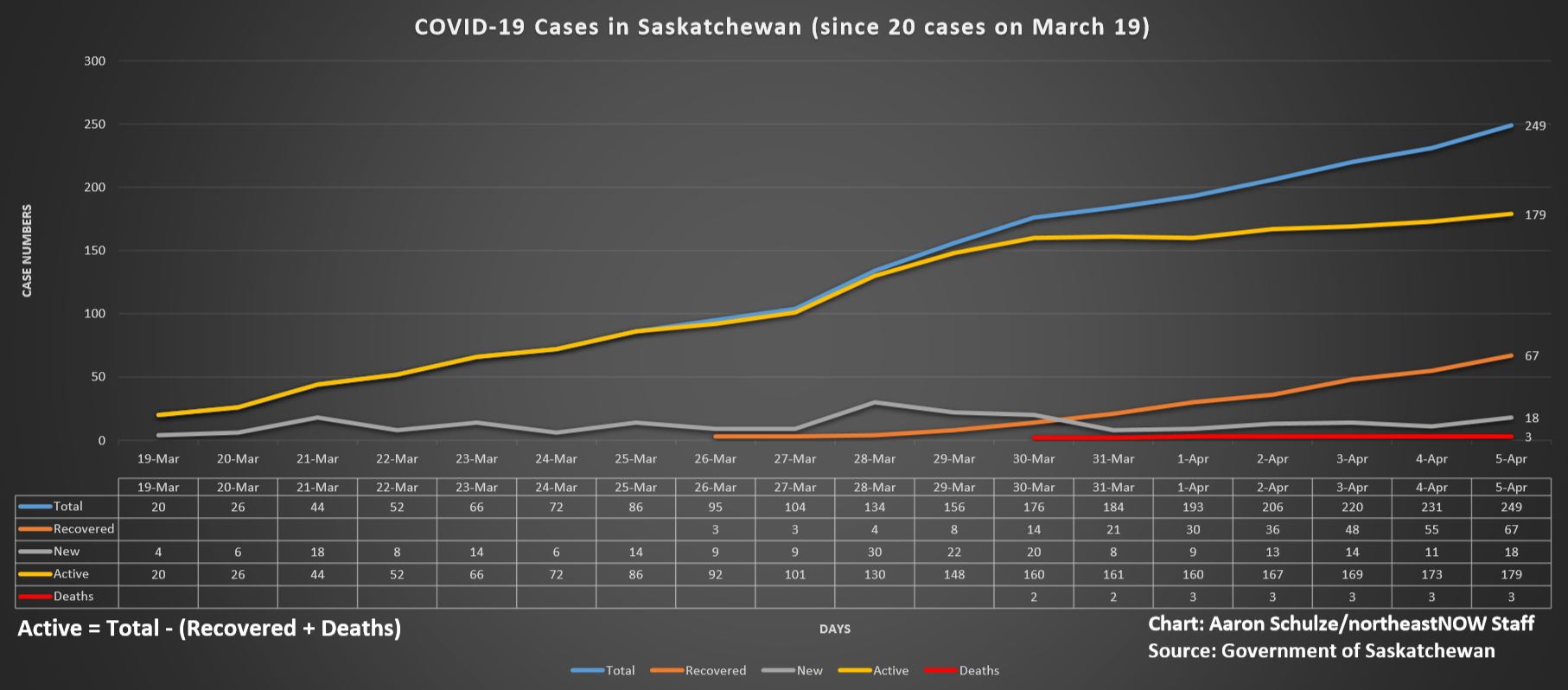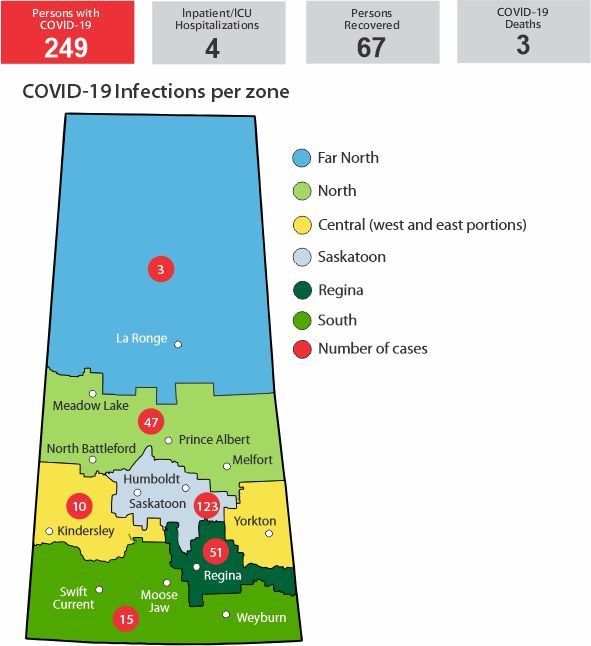
18 more COVID-19 cases in Saskatchewan, four more in the North
Saskatchewan is reporting 18 more confirmed cases of COVID-19, bringing the provincial total up to 249.
Of those, four new cases are in the North region—bringing its total up to 47. The Far North did not have another case, as they are still reporting a total of three.
Recoveries are also on the rise with 67 people reported as recovered, 12 more than Saturday’s report.
Four people are being treated in hospitals in the province, two receiving inpatient care in Saskatoon and one ICU case in both Saskatoon and Regina.



